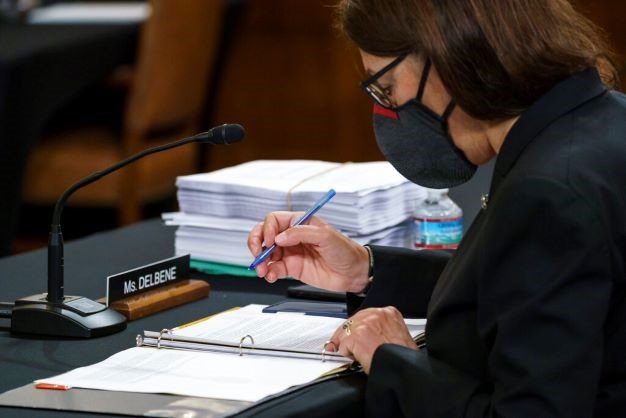
A proposal that will save thousands of journalist jobs is advancing, thanks to outstanding efforts by members of Congress committed to sustaining local journalism.
A core piece of the Local Journalism Sustainability Act (LJSA) is included in the $3.5 trillion budget reconciliation package the House Ways and Means Committee is finalizing this week.
U.S. Rep. Suzan DelBene, a Medina Democrat and Washington's sole representative on Ways and Means, was especially helpful achieving this milestone.
The committee's Sept. 12 draft spending priorities list includes the core of the LJSA, temporary tax credits for publishers employing and hiring journalists.
It calls for employment-tax credits up to $12,500 per quarter for print or digital local newspapers employing local journalists.
The credits would be available for five years, helping stanch layoffs gutting newsrooms while news organizations retool to better compete online.
"We know it's an important piece to have in there," DelBene spokesperson Nick Martin told me on Tuesday afternoon.
DelBene pushed for other priorities in the package. They include climate measures and an increase in low-income housing tax credits that would create 2 million affordable housing units nationally, Martin said.
The package is funded by an array of tax increases on wealthy Americans and companies.
Assuming it's approved in the House, it then moves to the Senate where saving local journalism has support from key leaders.
Backers include Majority Leader Chuck Schumer and Sen. Joe Manchin, the moderate West Virginia Democrat, who co-sponsored Sen. Maria Cantwell's Senate version of the LJSA.
As I wrote in Sunday's column, critical support is also coming from U.S. Sen. Ron Wyden, a Portland Democrat chairing the Finance Committee.
“We’re pulling out all the stops,” he told me. "I’m making the case that democracy depends on original reporting and local newspapers are responsible for more than half of that. We’re all in.”
I've argued before that local journalism is critical infrastructure of democracy. It's especially needed as the federal government embarks on a historic wave of domestic investment.
Just as Americans turned to local news during the pandemic, they'll need local reporting to keep them informed of how these trillions are spent locally, what opportunities they create and how to participate.
Accountability that local newspapers provide has also been found to lower government costs. That means Americans will get more bang for the buck if they support local news along with infrastructure spending.
This is not government controlling the press. Local journalism is a public good and Congress is helping it survive. Tax credits incentivize hiring and retaining journalists but don't influence reporting or pick winners.
If anything, this continues the government's long history of subsidies to help keep Americans informed and prepared to participate in democracy. That began with postal subsidies for periodicals the founders created in 1792.
"Magazines, as well as common Gazettes, might spread through every city, town and village in America," George Washington wrote in 1788. "I consider such easy vehicles of knowledge, more happily calculated than any other, to preserve the liberty, stimulate the industry and meliorate the morals of an enlightened and free People."
James Madison later warned of the dangers of losing the free press and ready access to civic knowledge.
"A popular Government without popular information, or the means of acquiring it, is but a Prologue to a Farce or a tragedy; or perhaps, both."
Whether the Senate modifies the journalism component of the spending package remains to be seen. Cantwell's version of the bill was more expensive, because it added credits for broadcasters.
The House version, a bipartisan proposal by U.S. Reps. Ann Kirkpatrick, D-Arizona, and Dan Newhouse, was leaner and focused on publishers.
Leaner yet is what's included in the Ways and Means draft. As of Tuesday, it preserved tax credits for publishers employing journalists but did not include LJSA's proposed tax credits for local advertisers and news subscribers.
Perhaps the Senate will restore those elements and the House will support them when it's all finalized, potentially later this month.
Either way the progress and support in Ways and Means is tremendous. It's a great sign that Congress is finally taking seriously the need to sustain America's local, independent press system.
Comments
No comments on this item Please log in to comment by clicking here